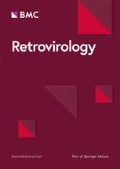Introduction
The finding that successful antiretroviral therapy (ART) can almost eliminate the risk of heterosexual HIV transmission is the scientific breakthrough of 2011 according to Science Magazine. This potential of ART has generated novel approaches to prevention including “Test and Treat” (T&T). Our qualitative study, drawing on the perspectives of French HIV experts, aims to better understand if, and how, a T&T approach might be applied in France and to generally learn more about concerns raised by prevention with early ART.
Materials and methods
In 2011, 19 French HIV experts participated in a semi-structured interview on implementing T&T in France. Expertise was typically defined on the basis of contribution to the 2010 French ART guidelines (Rapport Yeni 2010). Participants’ HIV expertise included clinical care, epidemiology, virology, and community activism. Interviews lasted an hour, on average, and explored opinions on T&T, who, how and whether to test and treat, and what public health discourses and evaluations should accompany it. Analyses of interview content pertaining to who or whether to treat early for prevention are presented here. A content analysis of the transcribed interviews was supported by the software Atlas.ti version 5.2.
Results
The decision to treat earlier than current guidelines recommend (CD4 >500) was generally associated with uncertainties and involved weighing the risks and benefits, whether potential or known, primarily in terms of patient health, the risk of transmission, patient choice, population health and/or cost. Perspectives on each of these aspects varied as did experts' position on treating early for prevention.
Conclusions
Despite ART-based HIV prevention’s status as evidence based medicine (EBM), French experts had uncertainties about early preventive treatment of HIV-infection which often translated into a weighing of benefits and risks to varying effect. Our findings suggest fostering a culture of dialogue and debate between care providers, community organizations and recipients of care on the complex considerations of implementing strategies of ART as prevention in France can help translate EBM into improvements in health and new HIV guidelines towards the eradication of HIV.
Author information
Authors and Affiliations
Corresponding author
Rights and permissions
Open Access This article is published under license to BioMed Central Ltd. This is an Open Access article is distributed under the terms of the Creative Commons Attribution License ( https://creativecommons.org/licenses/by/2.0 ), which permits unrestricted use, distribution, and reproduction in any medium, provided the original work is properly cited.
About this article
Cite this article
Lebouché, B., Engler, K., Lévy, J.J. et al. HIV experts on the decision to use early ART for prevention in France: are we there yet?. Retrovirology 9 (Suppl 1), P95 (2012). https://doi.org/10.1186/1742-4690-9-S1-P95
Published:
DOI: https://doi.org/10.1186/1742-4690-9-S1-P95

